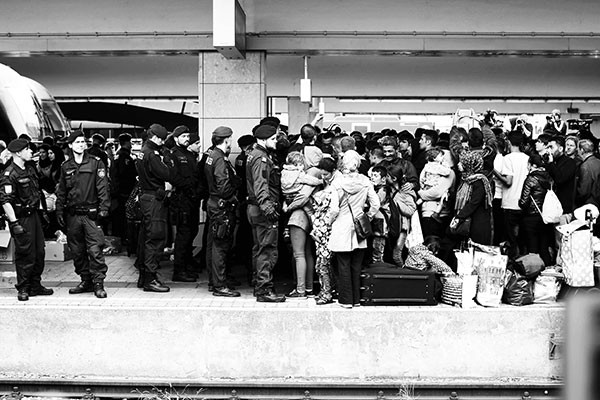Germany has imposed a temporary control on its border with Austria in an attempt to deal with the unprecedented influx of refugees into the country.
More than 13,000 refugees arrived in Munich on Saturday 12 September. A day later, Thomas de Maizière, Germany’s interior minister, announced the new policy.
De Maizière has ordered an interruption of trains passing between Germany and Austria, and spot checks are set to begin in traffic across the German-Austrian border. During the policy announcement, de Maizière said refugees couldn’t choose their host countries.
“The aim of this measure is to limit the current influx to Germany and to return to orderly entry procedures,” announced de Maizière. “[This is a] signal to Europe: Germany is facing up to its humanitarian responsibility, but the burdens connected with the large number of refugees must be distributed in solidarity within Europe.”
In a letter to fellow members of Germany’s Social Democratic Party, Sigmar Gabriel, vice-chancellor of Germany, said “Germany is strong and can handle a lot”. However, “in the past few days we have experienced how, despite our best efforts, our abilities have reached their limits”.
Gabriel said indications are that “in this year we will not see 800,000 refugees, as predicted, but a million”.
The controls seem to have worked on a small scale as the influx of refugees into Germany dropped by about half on Monday. However, the move caused a backlog of traffic along several roads and two main European highways, resulting in many angry commuters.
Shortly after Germany’s announcement, Austria, Slovakia and the Netherlands also adopted border controls for Syrian refugees.
The prime minister of Hungary, Viktor Orban, defended his decision in a press conference, saying Hungary is “not going to seal the border hermetically”.
“We are simply enforcing the laws which were already in force until now. Even until now, Hungary’s border should not have been crossed at any other place except the border crossings,” he said.
It is unclear how long the German border controls will remain, but Bavarian interior minister, Joachim Herrmann, has said they would last “at least a week”.
For refugees, the border controls have brought a new wave of anxiety as many have travelled for weeks hoping to make it to Germany. However, the Dublin Regulation, which means refugees cannot choose their asylum country, still holds. Refugees must apply for asylum in the first country they arrive in.
Through a spokesperson, Angela Merkel, Germany’s chancellor, announced on Monday that controls did not mean the border had closed, or that Germany would stop providing asylum.
“We will manage … [but] nobody said we would manage it all overnight.”







